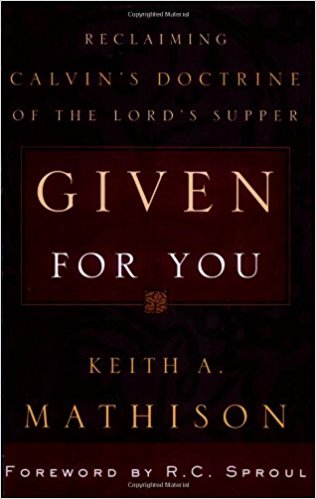- Jun 26, 2004
- 17,361
- 3,628
- Country
- Canada
- Faith
- Protestant
- Marital Status
- Married
- Politics
- CA-Others
Source
Question:
Could you explain the distinctive Presbyterian/Reformed view of the "Real Presence" in the Lord's Supper, and what it entails?
Answer:
This is an old and interesting question. The reformers Calvin, Luther, and Zwingli took somewhat different positions on this in response to the abuses that were being taught by the Catholic church. The view of the Catholic church, which may be worth stating here as a backdrop, was that when the priest said the blessing the elements of bread and wine were mysteriously transformed into the body and blood of Christ. This was called transubstantiation. They saw Christ as, if you will, overly present in the supper, to the point of being offered up over, and over, and over.
Christ's sacrifice was given "once for all," and that was on the cross (see Hebrews 9 and 10, especiallyGiven for You: Reclaiming Calvin’s Doctrine of the Lord’s Supper by Keith Mathison, published by P & R Publishing. It should be helpful.
Please let me know if I have helped or confused you! It is a tricky, but important question. The Lord’s Supper is a true, spiritual blessing to the people of God, and understanding the way in which Christ is really present in the Supper is important to seeing how our once-for-all sacrificed and resurrected Savior continues to give himself to his people.
Blessings in him.
Question:
Could you explain the distinctive Presbyterian/Reformed view of the "Real Presence" in the Lord's Supper, and what it entails?
Answer:
This is an old and interesting question. The reformers Calvin, Luther, and Zwingli took somewhat different positions on this in response to the abuses that were being taught by the Catholic church. The view of the Catholic church, which may be worth stating here as a backdrop, was that when the priest said the blessing the elements of bread and wine were mysteriously transformed into the body and blood of Christ. This was called transubstantiation. They saw Christ as, if you will, overly present in the supper, to the point of being offered up over, and over, and over.
Christ's sacrifice was given "once for all," and that was on the cross (see Hebrews 9 and 10, especiallyGiven for You: Reclaiming Calvin’s Doctrine of the Lord’s Supper by Keith Mathison, published by P & R Publishing. It should be helpful.
Please let me know if I have helped or confused you! It is a tricky, but important question. The Lord’s Supper is a true, spiritual blessing to the people of God, and understanding the way in which Christ is really present in the Supper is important to seeing how our once-for-all sacrificed and resurrected Savior continues to give himself to his people.
Blessings in him.

